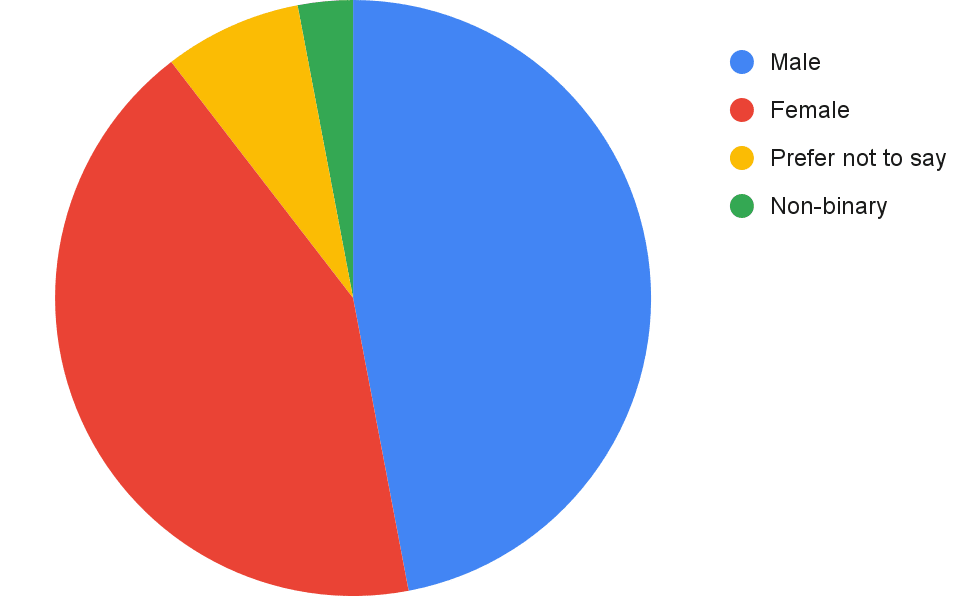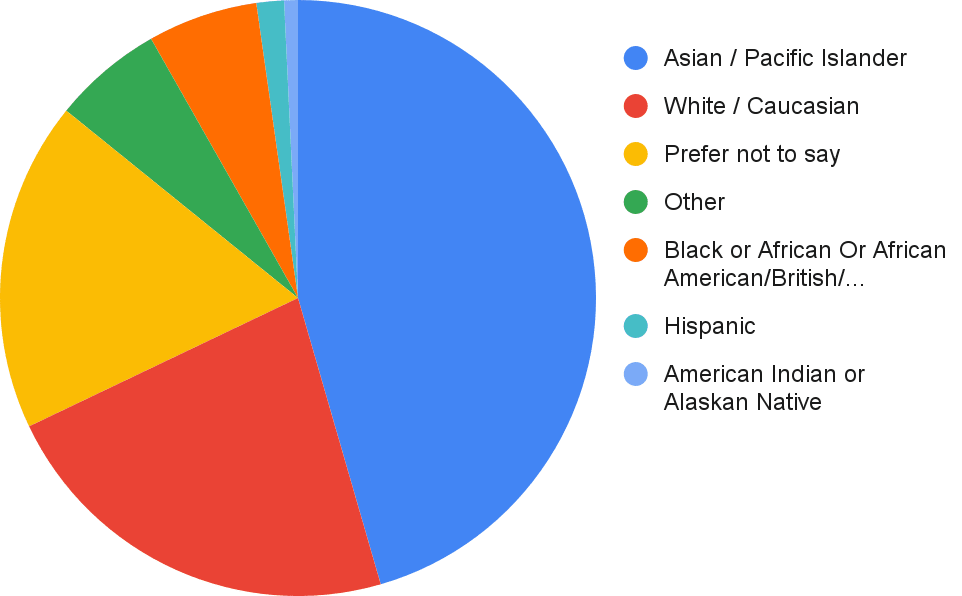Summary
Non-Trivial helps bright high school students start solving the world's most pressing problems.
Since our first fellowship 2 years ago, we’ve received over 35,000 applications and our alums have already gone on to co-author reports for the UN and publish at NeurIPS.
We’re now facing an unexpected funding gap of ~$360k for 2025 and ~$1M for 2026.
This post is an abridged review of 2024, 2025 plans, and our funding gaps. If you’d like any more information, or you can help out, please email our founder Peter (peter@non-trivial.org).
About Non-Trivial
Many young people make crucial decisions that guide the rest of their lives. Non-Trivial empowers exceptional high schoolers to grapple with the question "How can I make a meaningful difference?" before facing option-constraining decisions, like what to study at university.
Our participants conduct impact-oriented and (importantly!) self-directed research on a topic that interests them. We support them with free online programs that provide mentorship, scholarships, and a global community of dedicated fellows.
Non-Trivial was founded by Peter McIntyre, who previously set up 80,000 Hours’ advising, headhunting, and job board.
Our fellows have worked on a range of problems, such as:
- AI: A Timeline for Representation Plasticity in LLMs
- Abrupt sunlight reduction scenarios: Stratospheric Aerosol Removal Technology
- Biosecurity: An Improved Epidemic Model for Interconnected Networks
- Climate change: Greenhouse Effect for Good in Industrial Production
- Global health: Developing the First Mechanistic Forecast for Dengue
- International development: A Novel Self-Supervised Approach to Detect Plant Diseases
- Improving institutions: Developing a Psychological Scale to Measure Scout Mindset
- Neurodegenerative diseases: KIGAD: Kinematic Integrated 3D Joint Gait Analysis for Alzheimer’s Diagnosis
2024 review
Promotion and selection:
- We received >10,000 applications in 2024, from which ~150 fellows were selected. Since our first fellowship 2 years ago, we’ve had ~300 fellows graduate from >35,000 applications, making our program one of the most selective for teenagers globally.
- Our fellows achieve higher average SAT scores than Harvard students (1560 compared to 1550) and about 57% of our fellows end up attending an Ivy League or top 10 Times Higher Education university.
- We set up partnerships with top competitions (e.g. IOI, ISEF, WSDC, AMC).
- However, because there were many promising applicants we couldn’t accept, we believe we made a mistake in not trying to increase the number of top scorers on the (SAT-like) puzzles on our application.
Fellowship:
- We had 132 fellows graduate from the fellowship in 2024.
- Likelihood to recommend the fellowship increased from 8.5 in 2023 to 9.0 (out of 10, as are all scores below).
- Similar to 2023, ~45% of 2024 fellows identify as female/non-binary/other as their gender and ~15% as an ethnicity that’s not Asian/White/“Prefer not to say”.
- We rewrote three worksheets to improve project selection, resulting in an increased subjective usefulness rating for worksheets increasing from 6.8 to 7.8.
- We tested speaker Q&As with Matt Clifford, Rachel Glennerster, Peter Singer, and Yoshua Bengio, which were rated as the second-most useful part of the fellowship (8.1) after the community Discord (8.1).
- However, we missed our target for the number of fellows (350) as we canceled two out of three planned cohorts to make more progress on hiring.
Impact:
- We ran a survey of previous fellows and finalists (36% response rate).
- We learned about the impressive work from some of our alums, like co-authoring a UN report and publishing at NeurIPS.
- We learned of some promising alums who credit Non-Trivial with helping them have more impact. Contact peter@non-trivial.org if you’d like to learn more.
Hiring:
- We hired Stefan Torges as Head of Fellowship, who ran selection and the fellowship.
- We hired Dr Mary Renaud as our Head of Outreach and Communications.
- We missed our hiring targets due to overestimating our capacity.
Safeguarding and community health:
- We take the health, safety, and intellectual autonomy of our participants very seriously.
- We completed a review of our program to ensure participants are forming their own views about the ideas that they encounter in our programs (“intellectual autonomy”), particularly those associated with effective altruism. As a result, we rewrote our worksheets, made our prize rubric cause agnostic, rewrote the curriculum and added more EA criticism, and ran EA criticism events and Discord discussions.
- We completed new program risk assessments and updated previous assessments for program changes, which were reviewed by legal counsel.
Track record
Our participants (ages 14-20) typically have a multi-year lag before they are able to help solve pressing problems in the world. That makes it hard to assess the impact of our programs at this point because it has been only two years since our first program.
So instead of focusing on direct contributions at this stage, we gauge our expected impact by looking at:
- Outlier talent: Do we receive applications from a globally representative group of exceptional young people?
- Program performance: Do participants report enjoying and getting value from our programs?
- Impact stories: Do alums on a path to making a big difference attribute some of their impact to us? Please get in touch with Peter if you’d like to see these impact stories.
To help assess these factors, we analyzed the exit survey from our July 2024 cohort and conducted an impact survey among previous fellows and finalists. Our impact survey had a 36% response rate (n=164 responses out of 176 fellows from 2022/2023 and 278 finalists from 2024). Some results are reported below.
Outlier talent
Overall, our fellows are significantly above average high school graduates in attending top universities and SAT test scores.
| 2023 Fellows | 2024 Finalists | 2024 Fellows | |
|---|---|---|---|
Average SAT scores (Harvard average: 1550) | 1564 (n=37) | 1533 (n=35) | 1558 (n=61) |
Share of top 10 THE or Ivy League unis of those admitted to a university | 67% (n=48) | 20% (n=20) | 43% (n=37) |
Share of AIME qualifiers of those who reported AMC scores | 86% (n=7) | 72% (n=18) | 84% (n=37) |
Gender
Among admitted fellows, 54% indicated Male or Prefer not to say as their gender. 46% indicated Female, Non-binary, or Other.
Race/ethnicity
Among admitted fellows, 86% indicated either Asian / Pacific Islander, White / Caucasian, or Prefer not to say. Approximately 14% of our fellows indicated any of Black or African Or African American/British/…, Other, American Indian or Alaskan Native, or Hispanic.
Program performance
Participants generally reported being satisfied with and helped by our programs. Scores in the table below are out of 10 unless otherwise indicated.
| 2023 Fellows | 2024 Fellows | |
|---|---|---|
| Number of graduated fellows | 161 | 132 |
| Number of graduated finalists[1] | NA | 420 |
| Likelihood to recommend | 8.5 | 9.0 |
| Fellowship satisfaction | NA | 8.24 |
| Good use of time | 8.62 | 8.9 |
| NT helped me engage with the question of how I could make a difference | NA | 9.2 |
| NT helped me take action | NA | 9.0 |
| NT gave me confidence I could make a difference | NA | 9.2 |
| I expect to stay in touch with friends I met through NT | 6.3 | 7.5 |
Our 2025 plans
In 2025, we’ll prioritize better empowering our students to choose a problem they’re passionate about and making our program more appealing to our highest potential applicants.
How many participants we accept and staff we hire is dependent on our fundraising efforts.
2025 | |||
|---|---|---|---|
| Minimal | Baseline | Expansion | |
| Core staff (end of year) | 3 | 3 | 5 |
| Research Foundations Trainees | 500 | 800 | 800 |
| Research Fellows | 50 | 150 | 150 |
| Research Scholars | 6 | 12 | 12 |
Below is a summary of our OKRs for 2025.
1. Help participants engage critically with the question of how they can make a difference.
- Primary key result: “I felt empowered to choose the problem I research.” (Likert scale; exact target TBD)
2. Reach more of our most gifted target audience.
- Primary key result: Increase number of top scorers on our application puzzle from 53 to 100
3. Increase the number of top projects.
- Primary key result: 30% top projects scoring above 8/10 at Demo Day (from 18%) or its equivalent, as scored by staff with input from subject-matter experts.
Funding gaps
We’re facing an unexpected funding gap after Good Ventures' exit from high school programs, though our operations are funded through most of 2025.
So we can plan ahead, we're seeking ~$1M for our 2026 core operations. Early funding certainty is important for retaining our team and because we begin making program and partnership decisions in Q2 2025.
Additionally, our programs (being online and low marginal time cost) are highly scalable and primarily funding constrained. If we receive an extra ~$360k in commitments before March 1 2025, we’d be able to accept another 100 promising fellows to match our 2024 capacity.
Our lead grantmaker at Open Philanthropy says:
"I think Non-Trivial is filling what is currently a pretty neglected niche identifying and supporting talented high-school students; our estimates suggest they meet OP’s cost-effectiveness bar for this kind of outreach work. I would like to see them get funded."
If this is something you might consider helping out with, please email our founder Peter (peter@non-trivial.org).
- ^
We are changing the name of the Finalist Program to Research Foundations Program.



Donated.
I've been hugely impressed by the NT fellows and finalists I came across in my work at 80k and it seems like NT was either their first exposure to EA ideas or the first meaningful opportunity to actively apply the ideas (which can be just as important). I imagine uni groups are well in your debt for your role in helping finalists/fellows connect ahead of starting university too.